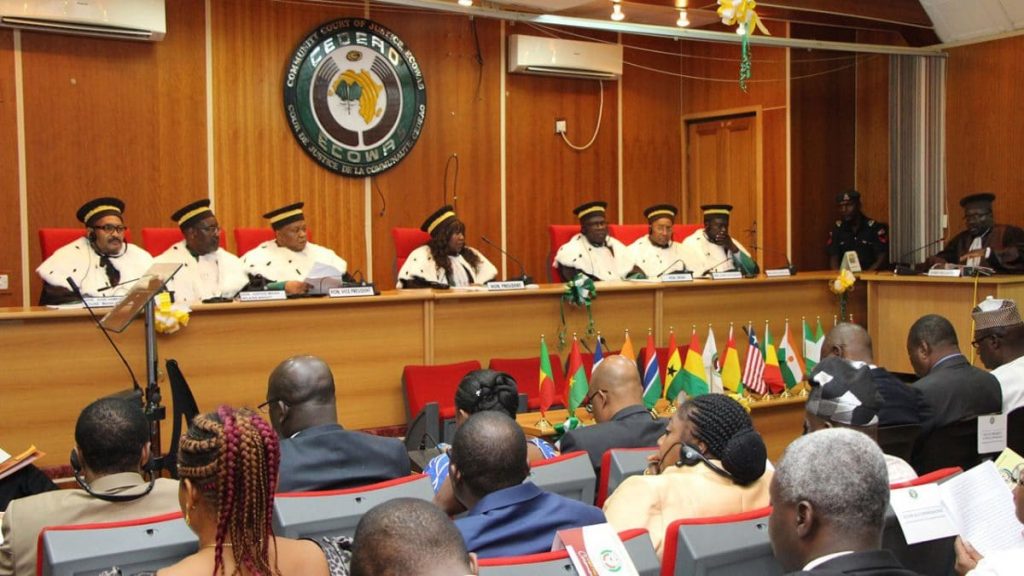News Investigators/ A former Vice President of the ECOWAS Court, Friday Nwoke, has called for the inclusion of criminal jurisdiction in the court’s mandate to enable it to handle criminal cases.
He threw the challenge during the ECOWAS Court‘s 2025/2026 Legal Year celebration, with the theme: “ECOWAS Court and International Law: Expanding Access and Navigating Contemporary Challenges in Abuja.”
Prof. Nwoke, a Professor of International Law at the University of Jos, said ECOWAS leaders should initiate the process of expanding the Court’s mandate to include criminal jurisdiction due to contemporary challenges.
He said: “We have spoken about terrorism. We have spoken about conflicts. We have spoken about challenges. But in terms of exercising jurisdiction in these areas, the court for now lacks that mandate.
“It demands and behoves the political authorities, especially the ECOWAS Commission, perhaps, to initiate the processes of expanding the jurisdiction of the court in view of contemporary challenges that are arising in this regard.
“This is because issues of migration, terrorism, climate change, and so on and so forth, cannot actually be brought on the pedestal of regionalism, unless the jurisdiction of the court is expanded in that regard.”
The don also urged ECOWAS leaders to expand the Community Court’s mandate and leverage the court to stem the tide of military coups and unconstitutional change of governments confronting West Africa.
“I think there should be a way that the political authorities should equally bring such conflicts within the ambit of the jurisdiction of the court.
“In that regard, the national courts are also supposed to be partners in progress with the community court, if we really want integration.
“We should be thinking of expanding the jurisdiction of the court to include criminal jurisdiction,” he emphasised.
Prof. Nwoke, who was the keynote speaker, also enjoined ECOWAS political authorities to ensure the enforcement of ECOWAS Court judgments among member states, noting that their goodwill was crucial for such obligation.
The don stated that Article 24 of the Supplementary Protocol stipulates that the enforcement of the judgments of the ECOWAS Court is to be enforced through the civil procedure rules of the courts of the member states.
“The political will appears to be one of the facets that is lacking in the area of the enforcements of the judgments of the court.
“One of the fundamental principles of access to justice is an enforceable remedy, so that persons who have gone through the process to obtain justice should be able to reap the fruits of their labour,” he said.
According to him, this is only possible through the collaboration of ECOWAS Court and member states’ domestic courts and the incorporation of the principles of community law into the national jurisdiction of member states.
Prof Nwoke said that to achieve this objective, member states’ national assemblies, and legislative institutions must incorporate the principles of the community court within the ambit of their legal system.
He said that member states must realise that running an international organisation or institution requires ceding some of their sovereignty to the institution to enable it function effectively.
Prof. Nwoke stressed that to make international law part of their domestic law, it was imperative that member states should try as much as possible to incorporate community law.
“It is necessary for national courts to understand that the ECOWAS court of justice is not a competitor but a partner in progress.
“ECOWAS currently stands at the crucial intersection of justice, human rights, peace, and stability, and the enforcement of international norms within, with the potential shape for a bright West Africa.
“The ECOWAS Court of Justice is a partner in integration, so we must be in a position to expand its jurisdiction and expand its access to ECOWAS citizens,” he added.
NAN
